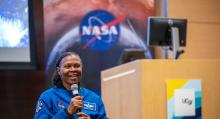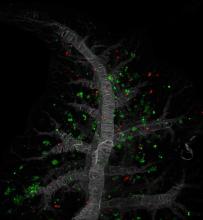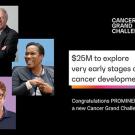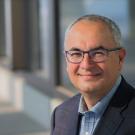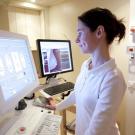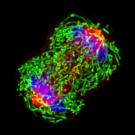News
Understanding the Genesis of Cancer is Goal of $25 Million Award
A world-class team of researchers co-led by UC San Francisco’s Allan Balmain, PhD, FRS, has been selected to receive a $25 million Cancer Grand Challenges award to investigate the very early stages of cancer development. Cancer Grand Challenges is a global funding platform, co-founded by Cancer
Screening and Removal of Precancerous Lesions Prevents Anal Cancer
In a groundbreaking finding, a new study led by UC San Francisco found that routine screening for and removal of precancerous anal lesions can significantly reduce the risk of anal cancer, similar to the way cervical cancer is prevented in women. The national study is published June 16, 2022, in the
Sweet-Cordero Appointed Chief of the Division of Oncology in the Department of Pediatrics
Alejandro Sweet-Cordero, MD, has been appointed chief of the Division of Oncology in the Department of Pediatrics, effective June 6, 2022. Sweet-Cordero also is director of the Molecular Oncology Initiative and co-leader of the Pediatric Malignancies Program for the Cancer Center. The following is
3-D Mammography Technique Benefits Some Women, Not All
For many women, breast cancer screening with a 3-D imaging technique called digital breast tomosynthesis (DBT) may not offer advantages over digital mammography, but for some it may reduce the chance of an advanced cancer diagnosis, according to a new study published June 14 in Journal of the
A Brain Tumor Patient Celebrates Survival
When Cheryl Broyles was diagnosed with glioblastoma, a deadly brain tumor, her goal was to outlive the disease’s 15-month prognosis long enough for the younger of her two toddler sons to reach kindergarten. That was 22 years ago. Broyles’ survival has been the result of luck, tumor location, and
AACR Releases Cancer Disparities Progress Report 2022
The American Association for Cancer Research (AACR) today released its Cancer Disparities Progress Report 2022. The publication raises awareness of the enormous toll that cancer exacts on racial and ethnic minorities and other medically underserved populations, while highlighting areas of recent
New Biomarker Classifications May Improve Treatment for High-Risk Breast Cancer Patients
Research scientists and statisticians from UC San Francisco have developed improved biomarker classifications as part of their research results in the I-SPY 2 trial for high-risk breast cancer patients. The new cancer response subtypes reflect responsiveness to drug treatments and are intended to

